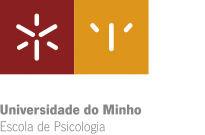MONITORING COMMITTEES
Monitoring Committees
1. The Monitoring Committees (MC) of the Doctoral Program in Basic Psychology (DPBP) are appointed after the submission of the applications to the Program. The MC will have as their first mission to discuss the admissibility of the projects proposed by the candidates. The MC will be composed of the supervisor(s), an element suggested by the supervisor(s), and a member of the DPBP Board of Directors. This Committee must make a written decision on the project, within the deadlines defined in each academic year for each phase of the DPBP application, and may provide suggestions and/or guidelines to improve it.
2. The student should make the best use of the suggestions/guidelines of the MC during the first year of attendance at the DPBP.
3. At the end of the first year of the DPBP, the student must submit, in writing, the definitive project to the MC, together with a description of the activities developed to achieve it during that school year. In the following years and at the end of the second semester of each academic year, the student should present a report of the activities developed, as well as the evolution of the thesis work.
4. In case the student requests the suspension of the counting of the deadlines for the completion of the thesis, the MC must be informed. When the thesis work is resumed, the student needs to make a point of situation with the MC.
5. The reports presented annually by the students will be the subject of public discussion with the MC.
6. The reports shall be structured as follows:
A. PhD project summary
B. Activities carried out
B.1 Literature review
B.2 Data collection
B.3 Data analysis
C. Scientific production
D. Training
E. Other activities
F. Reflection (including design deviations)
G. Timeline
7. MC meetings usually take place up to 30 days after the delivery of the reports in each academic year.
8. The purpose of the annual meetings with the MC is to support the student in completing the thesis. These are discussion meetings about the evolution of the PhD project, in which the MC is expected to formulate questions and provide suggestions that are useful and relevant to the development of the students' work. The meetings, with a maximum duration of 60 minutes, begin with a formal presentation done by the PhD student, followed by questions and suggestions by MC.
9. At the end of each meeting, the MC shall deliver a feedback, accompanied by one of the following qualitative statements: "Favorable opinion", "Favorable opinion with reservations" or "Unfavorable opinion". In the latter two cases, the MC must justify the written statement and suggest a plan for the student. Except in extreme cases, if there has been no "favorable opinion with reservations" previously, the MC should not give an unfavorable opinion.
A. The "favorable opinion" should be given in situations where there is no concerns about the progress of the work or change from the original plan or, if there is one, it is justified/substantiated.
B. The "favorable opinion with reserves" should be issued in situations where there is some concern about the progress of the work.
C. The "unfavorable opinion" corresponds to a disapproval in the Curricular Unit of Research 1, 2 or 3, according to the curricular year of the DPBP in which the doctorate is and should be duly substantiated by the MC.
10. The final jury proposal should include the members of the Board of Directors.
Thesis
1. Theses should be organized in the form of articles. They should contain a section with an introduction, which contextualize the topic studied before the presentation of each of the studies in an article format, and a final section in which a general discussion and conclusions of the dissertation are presented.
2. A minimum number of articles to be produced is not established, although at least 3 articles are recommended.
3. The production of articles in a "piecemeal publication" format is not recommended.
4. At least one of the articles must be submitted for publication in a reference journal.
5. The articles must have the student as the first author. If this does not happen, the DPBP Board of Directors should be informed and should issue a binding opinion on the matter.
6. The supervisor(s) must appear as co-author(s) of the articles.
7. The Board encourages students to submit articles to high-impact journals rather than submitting multiple articles to journals with a reduced impact.
8. The work developed in the doctoral program must be submitted to the Ethics Commission of the University of Minho.


